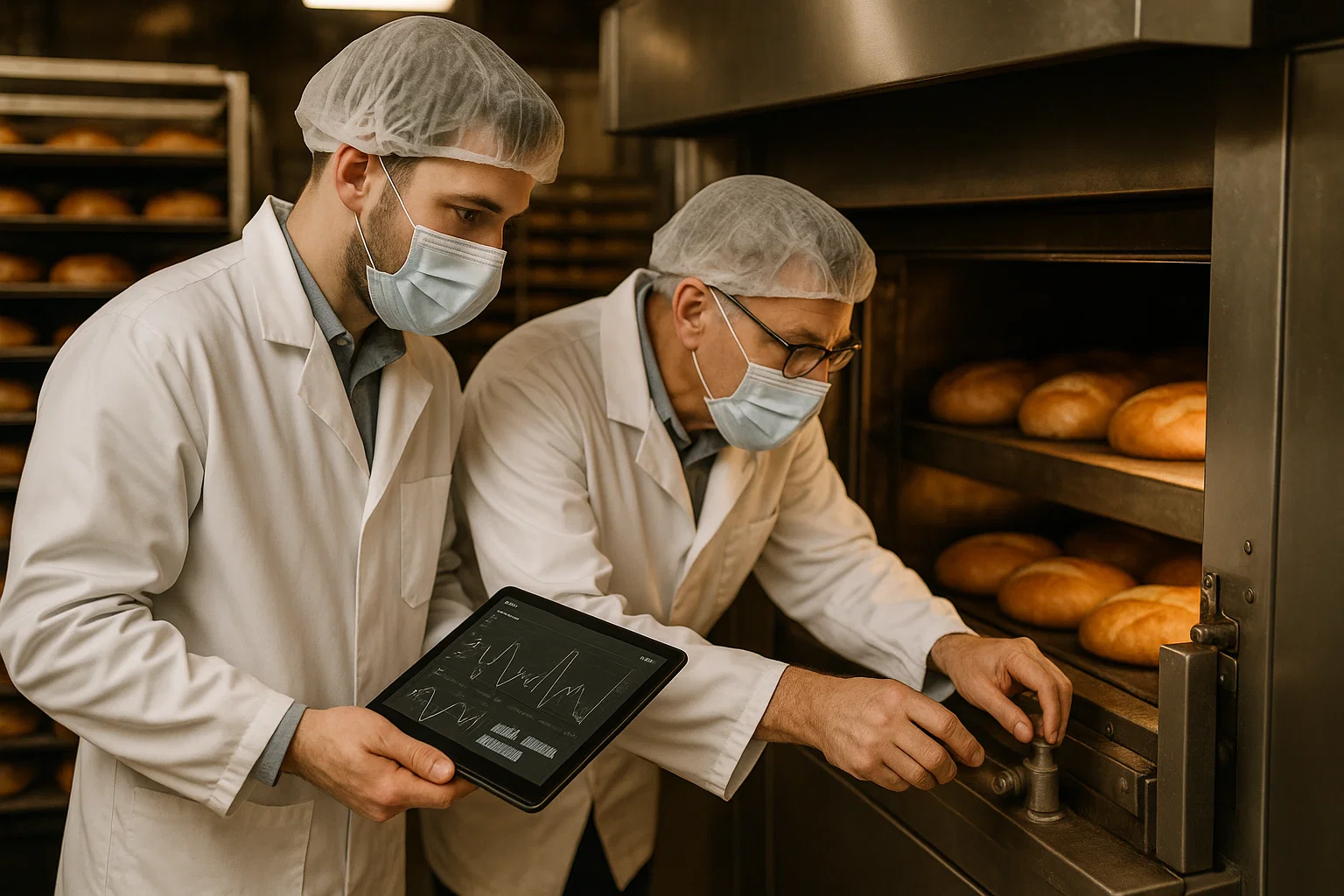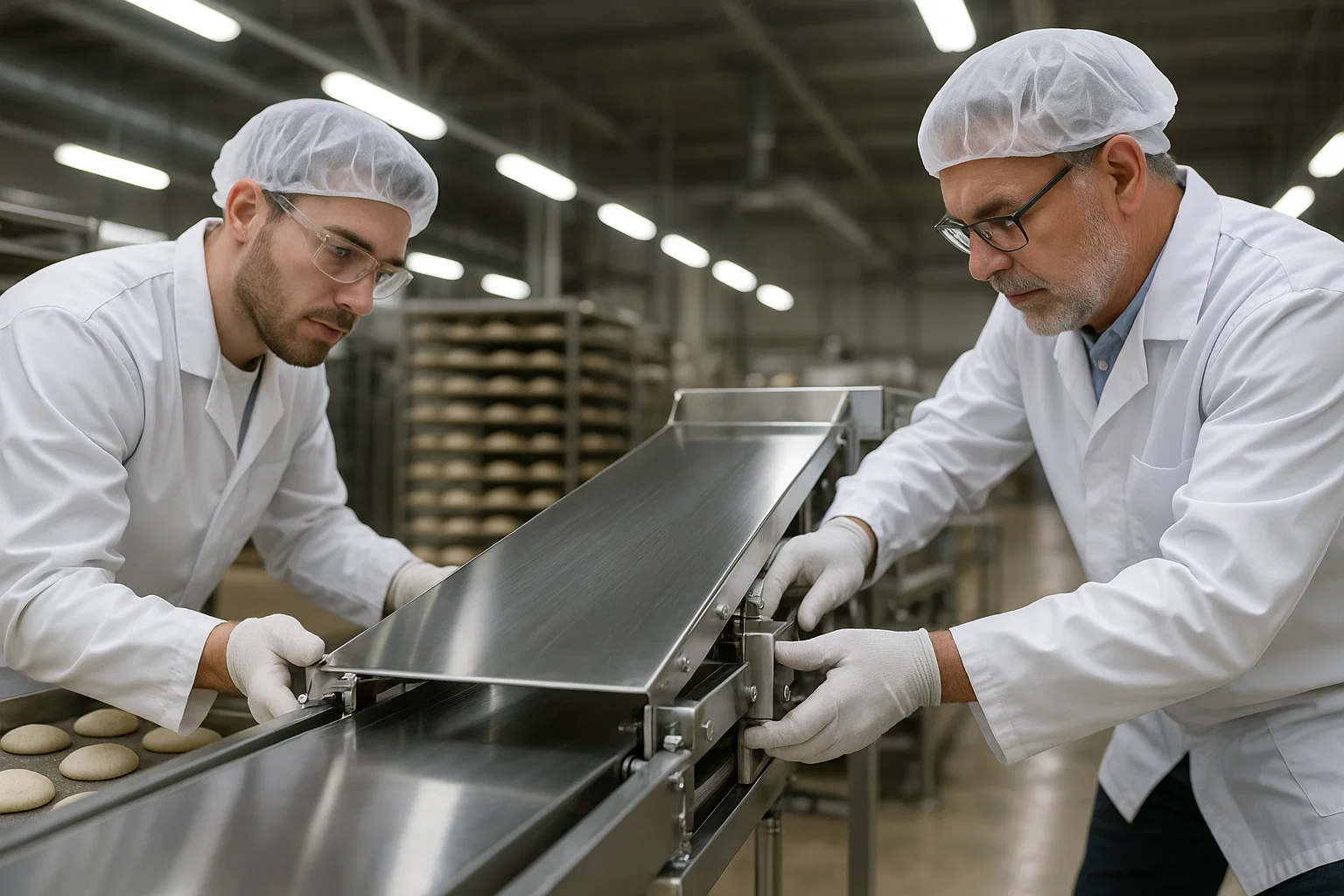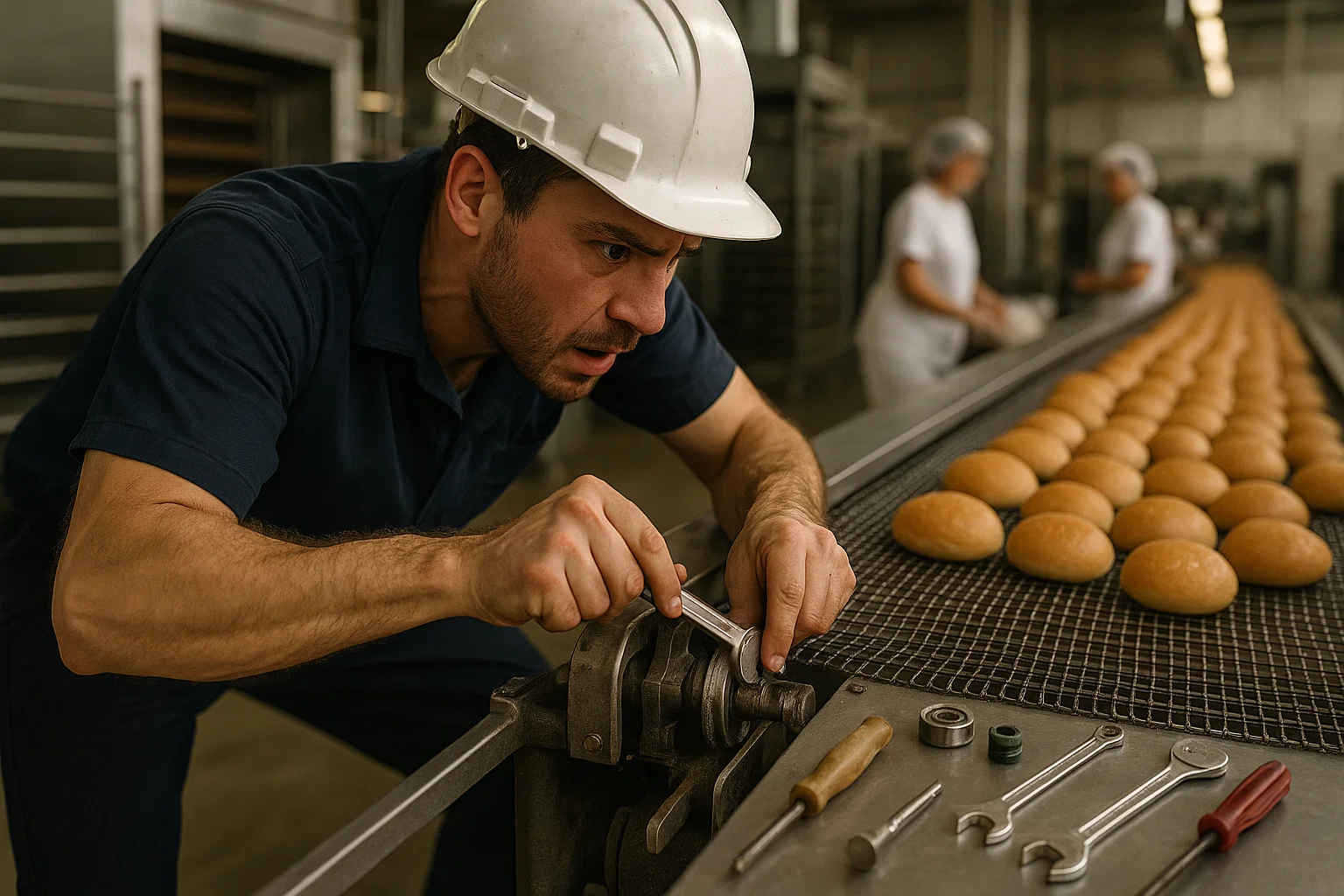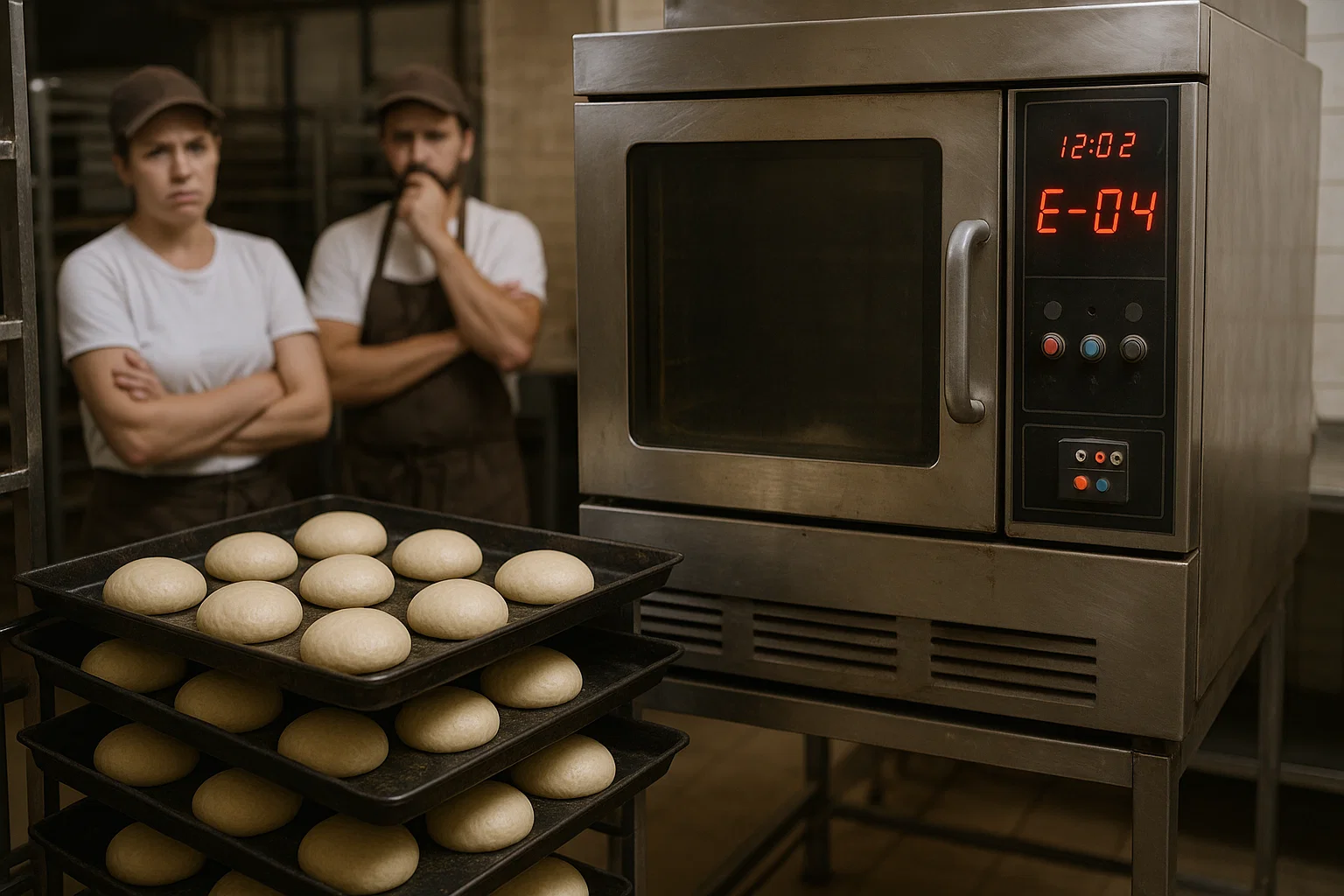Running a bakery is relentless work. The mixers start before dawn, ovens never seem to cool and orders pile up whether you’re ready or not. With production lines running around the clock, a single breakdown can throw everything into chaos. That’s where bakery engineering support proves its worth, an essential maintenance service that keeps things moving when the pressure is on. Without it, an oven that won’t fire up or a conveyor belt that grinds to a halt could cost more than just time – it could cost contracts, customers and trust.

Why Bakery Engineering Support Matters More Than You Think
Every bakery depends on its machines. Mixers, provers, ovens, conveyors, they all need to work together like clockwork. When one stalls, the whole line suffers. Anyone who’s stood on a shop floor waiting for dough to prove while an oven sits cold knows the frustration.
Having specialist engineers on hand means problems don’t linger. Faults are spotted, fixed and the day carries on. It’s that reassurance that makes engineering support feel less like a service and more like a lifeline. With the right team on site, bakeries can achieve optimal performance while still hitting the highest standards regulators demand.
Planned Maintenance or Last-Minute Repairs?
Ask a bakery manager whether they’d rather plan maintenance or gamble on repairs…most will sigh. Waiting for something to break might feel like the cheaper option until it isn’t. A failed motor mid-shift doesn’t just need a repair it causes waste, missed deliveries and long nights catching up.
Planned inspections flip the script. Engineers check for wear, swap out tired spare parts and make small tweaks before they become major faults. This sort of schedule cuts surprise breakdowns, extends the life of ovens and conveyors, bringing servicing under control. For bakeries that run nonstop, preventative maintenance isn’t just helpful, it’s survival. Nobody wants to explain to a supermarket buyer why their bread delivery won’t arrive because of a seized bearing.

Building Bakery Equipment That Fits the Job
Not all bakeries can rely on off-the-shelf kit. A large site might need a custom conveyor to slot into a tight space. A smaller producer might want a tin cleaner that’s easy to hose down between shifts. That’s where bespoke installation makes the difference. Engineers can design bakery equipment that actually suits the space, the staff and the products.
Hygiene has to come first. Food-safe design, smooth finishes and easy-to-clean surfaces are non-negotiable. Stainless steel fabrication remains the go-to material because it withstands washdowns and doesn’t harbour debris. It’s not just about durability, it’s about meeting food-safety rules day after day. For manufacturers, these custom builds also open doors, maybe to expand a range of products without needing entirely new machines.
Staying on the Right Side of Food Safety
Compliance isn’t optional in food production. One failed hygiene audit can lead to penalties or, worse, damaged reputation. Food manufacturing engineering has to take that into account.
Good engineers don’t just weld and bolt. They arrive with food-safe toolboxes, wear the correct PPE and design with cleanliness in mind. Guards are fitted to moving parts, blowers positioned to prevent debris and welds smoothed so nothing sticks. These touches help bakeries meet compliance standards while keeping production safe. Across the UK, food companies lean on this level of service to stay audit-ready while still baking to schedule.

When Speed Is Everything
Even the best-maintained lines throw up surprises. What matters is how quickly someone can put them right. A rapid response can be the difference between a lost batch and a full night’s production.
Bakeries don’t often have the luxury of long stoppages. Sometimes an engineer has an hour to strip, fix and reassemble a machine before the next batch rolls in. Having support that reacts at speed keeps production on track and staff confident they’re not fighting faults alone. It’s this blend of responsiveness and reliability that keeps the loaves flowing.
Filling the Gaps with Skilled Engineers
Sometimes the problem isn’t machinery, it’s manpower. A missing maintenance lead on the night shift can leave a site exposed. That’s when having access to engineers for shift cover is invaluable.
These aren’t outsiders fumbling with unfamiliar kit. They’re trained professionals who know bakery equipment, understand compliance and can slot straight into the production rhythm. They troubleshoot, make repairs and keep things steady until full staffing returns. For many businesses, that sort of complete support is what keeps the ovens warm and the shelves stocked.

The True Cost of Breakdowns
Downtime in a bakery is brutal. A cold oven can waste thousands of loaves and a stuck conveyor can back up the line in minutes. Every lost hour dents margins and risks contracts. It’s not just about the money, morale takes a hit too. Let’s not forget, customers don’t wait around when deliveries fall short.
Investing in consistent bakery engineering support is cheaper in the long run. Planned maintenance, responsive service and reliable repairs mean production rarely misses a beat. For companies working to tight supermarket schedules, that reliability is priceless.
Efficiency Gains from Custom Builds
Efficiency isn’t only about running faster. It’s about producing quality loaves, reducing waste and using people’s time wisely. That’s why custom engineering pays off.
Take a conveyor designed for fragile rolls. Instead of crushing products, it delivers them gently to packaging. Or a cooling blower that reduces turnaround without risking contamination. These tweaks don’t just make life easier, they help bakeries expand their product range and craft more goods with the same staff.
Every project comes with a warranty and after-sales service, giving bakeries peace of mind. It’s not just about building machines, it’s about backing them up. With strong support, equipment runs more efficiently, helping sites hit targets without burning out staff or machinery.

Why Partnerships Beat One-Off Fixes
Some bakeries treat engineering as a quick fix, but the smarter approach is partnership. Working with the same engineers year after year builds trust and continuity. They learn the quirks of each line, know which components tend to fail and can plan installation projects around production schedules.
This kind of relationship ensures that technology upgrades and maintenance are done right. Jobs are complete, disruptions are fewer and long-term stability follows. It’s not just about keeping machines alive, it’s about helping bakeries grow with confidence.
Keeping the Ovens Running
Bakeries face constant pressure with higher volumes, stricter standards, and tighter margins. Without proper engineering support, it’s a recipe for stress. With it, everything changes. Breakdowns are rare, compliance becomes routine and growth feels achievable.
Good engineering keeps the ovens hot, the conveyors humming and the shelves filled. It means bakeries can maintain stock, hit delivery deadlines and keep customers happy. Call it bakery engineering, call it peace of mind, either way it’s the backbone of keeping the nation fed.


